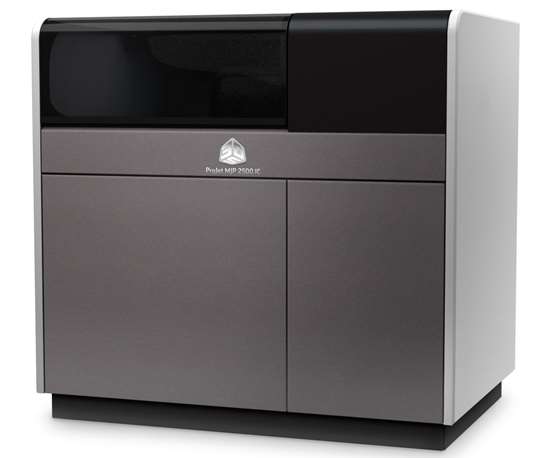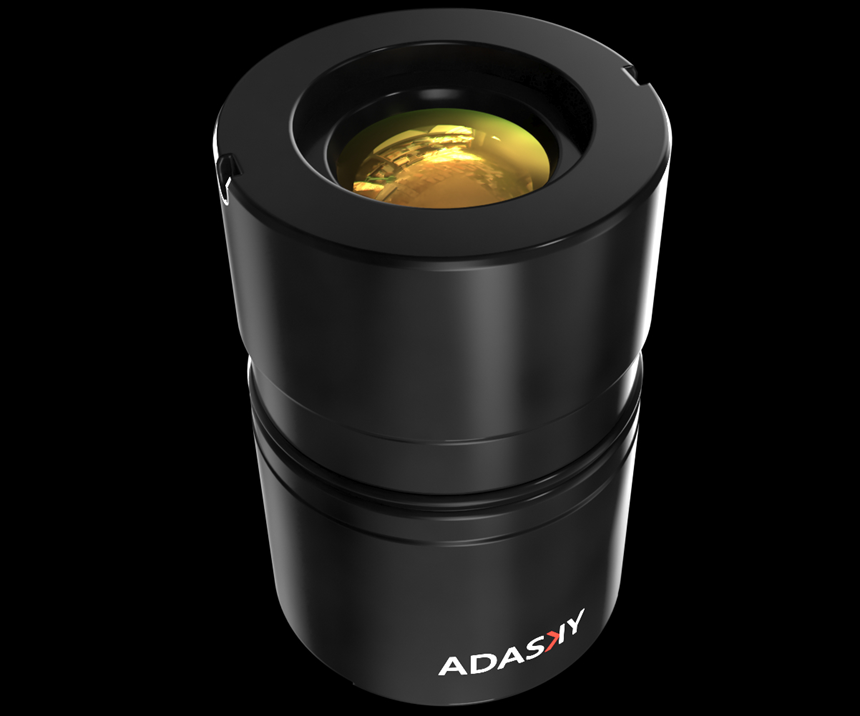Flexible, 3D Metal; Denso Takes Stake in Infineon; ProJet by 3D Systems; AdaSky Viper Camera Tech
Flexible, 3D Metal; Denso Takes Stake in Infineon; ProJet by 3D Systems; AdaSky Viper Camera Tech
#electronics #interior
Strong, Flexible, 3D Metal
"The idea of a composite that resolves the paradox of stiffness and damping was thought to be impossible–yet here we are.”
That’s Stefan Szyniszewski, assistant professor of materials and structures at the University of Surrey (surrey.ac.uk). And just where we are, at least according to a discovery by Szyniszewski and colleagues, could disrupt some big industries, e.g., any industry that relies on metal to transport people and things.
In a recent paper published in Scientific Reports, scientists say they’ve created a material with both high stiffness and damping qualities. The team, which included Johns Hopkins University and the University of California scientists, used 3D woven technical textile composite sheets, with select unbonded fibers. This construction allowed the inside of the material to move and absorb vibrations, while the surrounding material remains rigid.
For those seeking a smoother ride, this material could be a whole new ball game–if it lives up to the glowing terms of its creators.
“This is an exciting development that could send shock waves through the car, train and aerospace manufacturing industries,” Szyniszewski says. “This is a material that could make the vehicles of the near future more comfortable than ever before."
With Automated Driving in Sight, Denso Takes Stake in Infineon
Denso Corp. (denso.com) likes what it sees in Infineon Technologies (infineon.com), so much so it’s taking a small(ish) stake in the semiconductor company. Both companies say they’re doing so to build on their combined strengths in automated driving and electro-mobility.
The Japanese supplier has bought an equity stake in Infineon to the tune of a “mid-double-digit million Euro” amount. Denso notes that it is expanding its relations with chip makers as the demand for more intelligent and automated vehicle components continues to expand.
“We would like to establish optimal semiconductor solutions for in-vehicle electronics systems through strong partnerships with semiconductor companies in order to enhance the competitiveness of automated driving and electrification systems,” says Hiroyuki Ina, senior executive director of Denso.
In 2012, Infineon teamed up with Denso to develop a tire pressure sensor chip that supports built-in autolocation. The sensors measure inside the tire and the pressure data is transmitted via radio frequency to the receiving unit of the car. Infineon also supplies key components for the Audi A8, which in 2017, was one of the first production cars featuring Level 3 automated driving. Among the chips on board are radar sensors, microcontrollers and power semiconductors.
In October 2018 Denso announced plans for a new facility to develop and test automated driving technologies. Based at Tokyo’s Haneda Airport and set for completion by June 2020, the center will also develop prototypes and maintain test vehicles, as well as a proving ground to conduct live, in-vehicle tests.
Investment Casting – Recast
Investment casting has been around a while, as in 5,000 years or so. 3D Systems (3dsystems.com) has unveiled its ProJet MJP 2500 IC, which is targeting automotive and other industries reliant upon the centuries-old foundry process.
The new model produces “RealWax” (a 3D Systems material) to produce patterns in a few hours or less, eliminating the need for an injection molding process to make traditional pattern tools. Intended for producing metal cast components, the printer is meant to bridge the initial design phase to manufacturing and low-volume production.
All 3D printers market themselves as cost savers and 3D Systems is no exception when it comes to promoting ProJet MJP 2500 IC. 3D Systems quotes a cost comparison analysis conducted by Mueller Additive Manufacturing Solutions that showed a pattern tool for a mechanical cam costing $6,050 while the 3D printed equivalent pattern costing less than $25 with the new technology. According to Mueller, the global investment casting market is valued at nearly $14 billion, which includes parts for the aircraft and automotive industries.
“The ProJet MJP 2500 IC not only eliminates the need for injection-molded tools, it could potentially increase the casted part functionality while reducing part weight, both critical factors for improving part efficiency," said Mike Stanicek, vice president, product management, plastics, 3D Systems. "This also means that service foundries can now charge a premium for parts produced in days instead of weeks.”
Sensors That Know the Difference Between You, Me and a Lamppost
Your body temperature may keep you safe from an autonomous vehicle, which will read you as a human, instead of a vehicle or another inanimate object, all based on your heat signature. That’s the value proposition for AdaSky (adasky.com), whose Viper camera technology can measure heat from objects surrounding the car, including pedestrians.
South Korean supplier Sungwoo Hitech Co., Ltd, (english.swhitech.com) is investing $20-million into Israel-based AdaSky. Viper mates far-infrared technology (FIR) camera technology with deep-learning computer vision algorithms. The sensor can be incorporated into any autonomous driving or advanced driver assistance system for an added layer of safety, the company says.
Sungwoo Hitech’s products include bumpers, doors, fender aprons, and center/rear floors, so integration of that traditional tech and the new tech, could clearly be in the offing.
“Viper is the smallest, highest-resolution thermal camera for autonomous vehicles on the market. We strongly believe that AdaSky’s technology will enable 24/7 sight and perception for vehicles and put us all on the path to fully autonomous driving,” said Myung-Keun Lee, chairman and co-CEO of Sungwoo Hitech in an announcement.
Sungwoo Hitech is the lead investor and the initial closing of this $20-million is the first part of a larger investment round. The investment will fuel global expansion plans, AdaSky says.
The far-infrared technology market has grown nearly four-fold in the last five years, according to market research group Yole Développement.
AdaSky plans to continue to work on R&D projects and trials with OEMs.
RELATED CONTENT
-
On Military Trucks, Euro Car Sales, Mazda Drops and More
Did you know Mack is making military dump trucks from commercial vehicles or that Ford tied with Daimler in Euro vehicle sales or the Mazda6 is soon to be a thing of the past or Alexa can be more readily integrated or about Honda’s new EV strategy? All that and more are found here.
-
2017 Buick LaCrosse Premium AWD
The Buick design team deserves the strongest of accolades for their work at transforming the appearance of the brand from one of, well something akin to “the last ride” to one of contemporary stylishness befitting of a the cohort of automotive customers who didn’t cast their first presidential ballot in 1968 or earlier.
-
GM Develops a New Electrical Platform
GM engineers create a better electrical architecture that can handle the ever-increasing needs of vehicle systems










